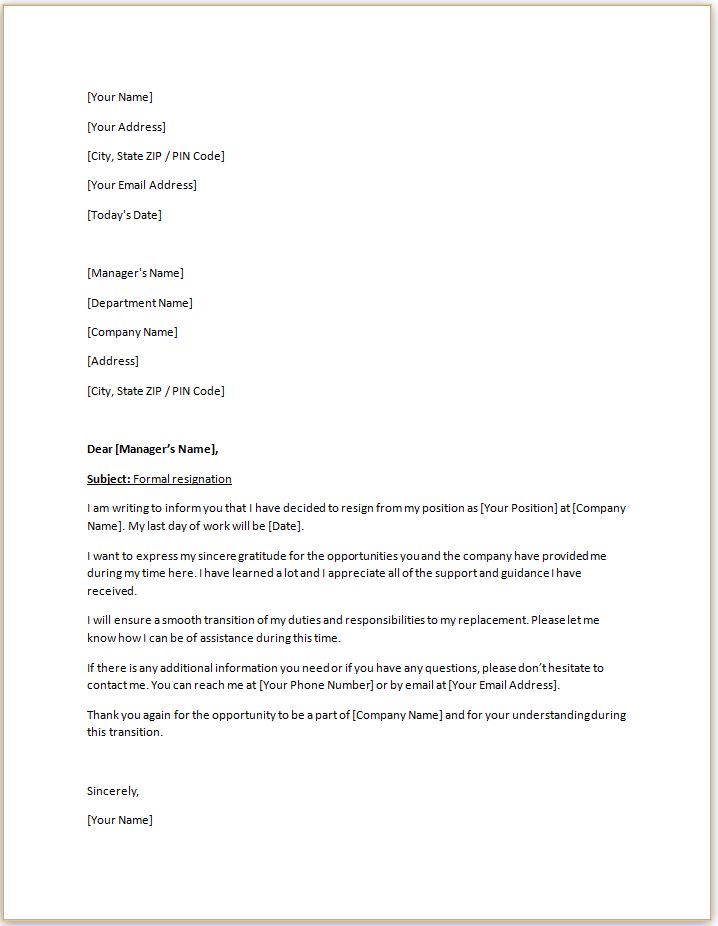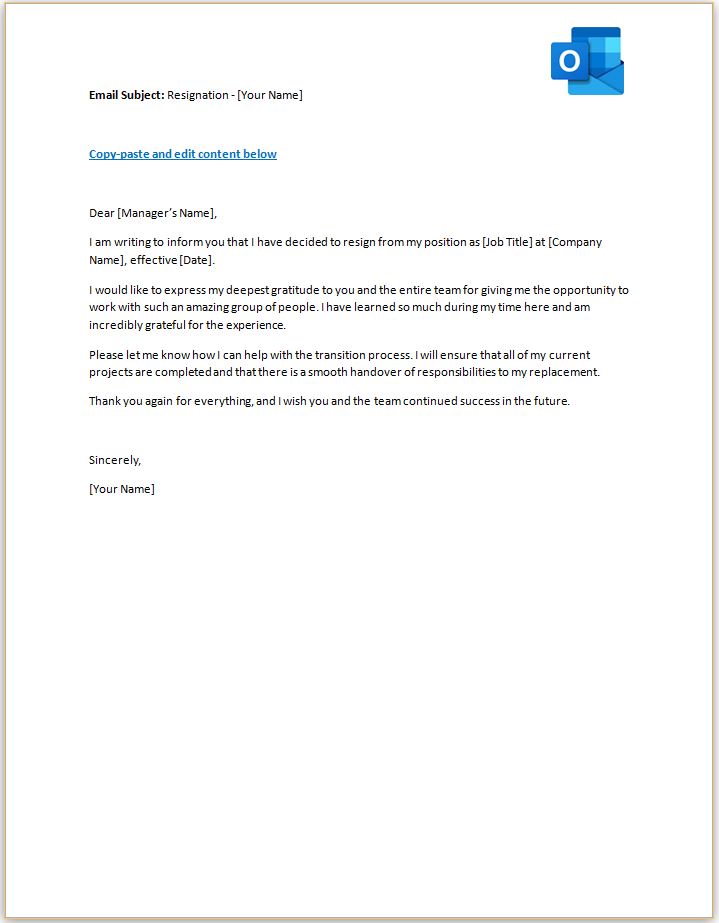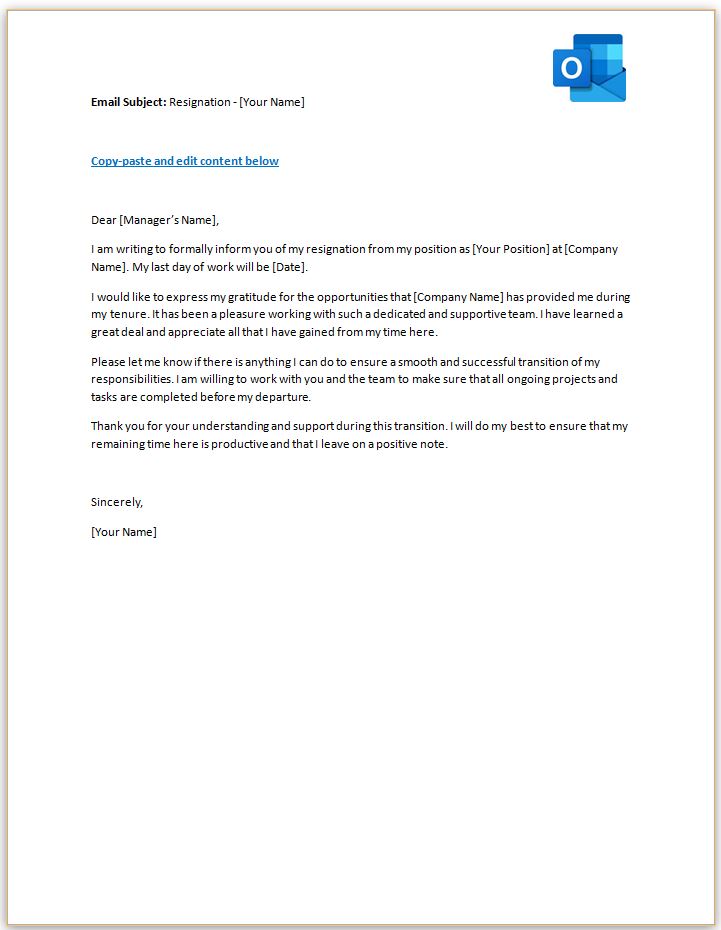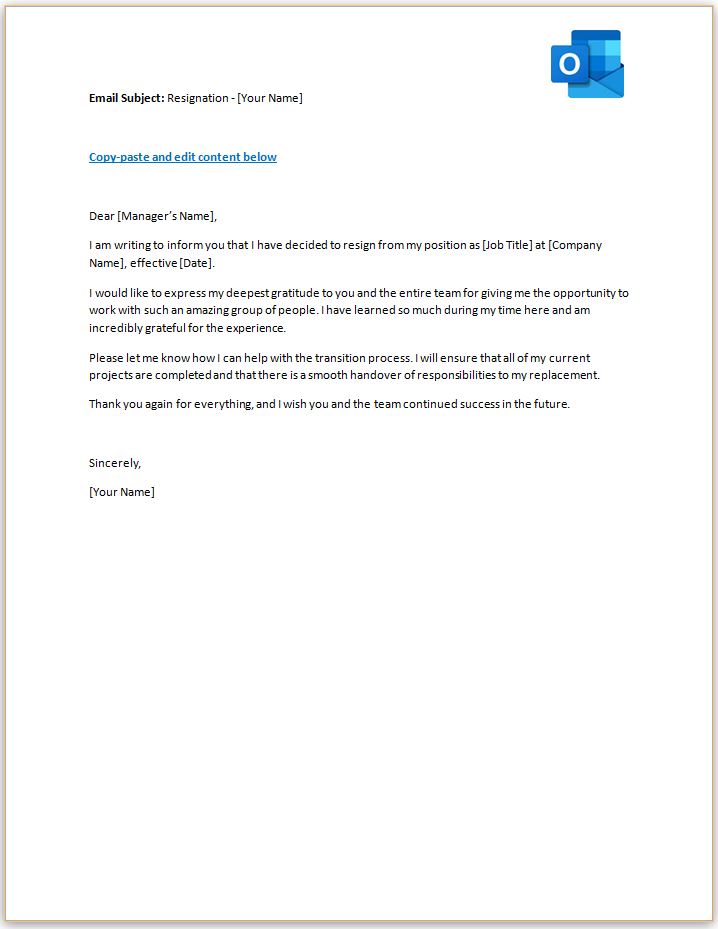How to Write a Resgination Letter in 2023 (With Downloadable Samples!)

02 May 2023

How to Write a Resignation Letter in 2023
People leave their employers all the time for various reasons, including seeking better opportunities, higher salaries, improved work-life balance, better company culture, and more.
The advantages of BBA course are immense. Apart from a promising career in the vast sector, BBA course helps you work independently by starting your own enterprise. This course doesn’t simply focus on one field in particular. It covers the vast components of management training and education
In the last 2 years, the COVID-19 pandemic has significantly impacted the job market and employee retention rates. The pandemic has forced many companies to implement remote work policies, which have changed the way people work and interact with their colleagues. This shift to remote work has resulted in some employees feeling disconnected from their teams and feeling a lack of support from their employers, leading to increased levels of stress and burnout.
Ready to use resignation letter samples
We know writing a resignation letter can be an emotionally overwhelmind process; that's why we have assembled a set of ready to use resignation templates. We have some kind ones, not so kind and pretty terse ones. Download, change names andother details such as your company name, etc and use.
Additionally, the pandemic has highlighted the importance of work-life balance and job security. Many employees have reevaluated their priorities and are now seeking jobs that offer flexible work arrangements, better benefits, and job security. This has led to increased competition among employers for top talent and increased job mobility among employees. The pandemic has accelerated some of the trends that were already impacting the job market, such as the rise of remote work and the importance of work-life balance, and has created new challenges for employers to retain and attract talent.
With increased job mobility, employees are now more likely to switch jobs if they feel that their current employer is not meeting their needs or providing sufficient support. This has led to a more competitive job market, with companies offering higher salaries and better benefits to attract and retain top talent. The pandemic has also accelerated the use of technology in the workplace. Many companies have adopted new tools and platforms to facilitate remote work and collaboration, leading to a greater reliance on digital communication and data management.
Some quick tips on writing a resignation letter
Keep it simple and professional: Your resignation letter should be clear, concise, and professional in tone. Avoid using overly emotional language or language that might be seen as confrontational./p>
State your intention clearly: Begin your letter by stating your intention to resign and include the date on which you will be leaving.
Express gratitude: Even if you are leaving on difficult terms, it is always a good idea to express gratitude for the opportunities you have had during your time at the company.
Offer to help with the transition: If possible, offer to help with the transition process and ensure that your responsibilities are handed over to another employee.
Be prepared for follow-up questions: Your employer may have questions about your resignation or your future plans. Be prepared to answer these questions honestly and respectfully.
Proofread and edit: Before sending your resignation letter, make sure to proofread and edit it carefully. You want to make sure that there are no typos or errors that might reflect poorly on you.
Remember, your resignation letter is an opportunity to leave a positive final impression with your employer, so be sure to approach the process thoughtfully and professionally.
What is a regination letter
If you are just beginning to work in a formal setting and are already looking to leave your organization, you may have heard the term "Resignation Letter". A resignation letter is a formal document that an employee submits to their employer, indicating their intention to leave the company. The letter typically includes the employee's name and position, the date of the letter, the date of the employee's last day of work, and a brief explanation of why the employee is leaving (if desired). A resignation letter is an important part of the resignation process and is often required by companies as part of their policies and procedures.
A resignation letter can be either a paper document or an email, depending on the company's policies and the preference of the employee. In some cases, companies may require employees to submit a physical copy of the resignation letter, while others may accept an electronic version sent via email. It's important to check with your employer to determine their specific requirements for submitting a resignation letter.
The resignation letter is typically sent when an employee has decided to resign from their position and wishes to formally communicate this decision to their employer. It is generally recommended to submit the letter as soon as possible once the decision to resign has been made, in order to provide adequate notice to the employer and to ensure a smooth transition for both the employee and the company. The letter should be submitted before the employee's last day of work, and ideally with at least two weeks' notice to allow for a proper handover of responsibilities.
The resignation letter is typically sent to the employee's immediate supervisor or manager, as well as to the human resources department of the company. This ensures that both the employee's immediate supervisor and the company's HR department are aware of the resignation and can take the necessary steps to begin the offboarding process. In some cases, the resignation letter may also be sent to other relevant parties, such as the CEO or other members of senior management, depending on the organizational structure of the company.
How to get started with your resignation letter?
Writing a resignation letter can be an emotional experience, especially if you have been with the company for a long time or if you are leaving for personal reasons. Here are some steps you can take to get started:
Plan your departure: Before writing your resignation letter, it's important to plan your departure carefully. Make sure you have a clear understanding of your reasons for leaving, and have a plan for how you will manage the transition.
Keep it professional: Even if you are leaving on bad terms with your employer, it's important to keep your resignation letter professional and polite. Avoid any language or statements that could be interpreted as negative or confrontational.
Keep it brief: Your resignation letter should be brief and to the point. You don't need to provide a detailed explanation of your reasons for leaving, or a blow-by-blow account of your time with the company.
Express gratitude: Take the time to express your gratitude to your employer and colleagues for the opportunities you have had and the experiences you have shared. This will help to maintain positive relationships and leave a good impression.
Provide a timeline: Be sure to include the date of your intended last day of work and any other relevant details, such as your availability to train a replacement or any outstanding projects you need to complete before you leave.
Remember that your resignation letter is a formal document that will become part of your employment record. Take the time to carefully consider your words and express yourself in a way that is professional, courteous, and respectful of the company and your colleagues.
What to include in a resignation letter?
Keeping the resignation letter to the point is essential for several reasons. Firstly, it demonstrates professionalism and respect for the employer's time. It shows that you understand the situation and have considered the implications of your decision.
Secondly, a concise and straightforward letter helps to avoid any misunderstandings or confusion. Your employer will appreciate clarity and transparency, and it can help ensure that everyone is on the same page.
Finally, keeping the letter brief and to the point can help you avoid saying things you might regret later. When you're in an emotional state, it's easy to say things that you don't mean or that could be misconstrued. By keeping the letter simple and factual, you can minimize the risk of this happening.
Main sections of a resignation letter
Date: The date on which the letter is being written.
Addressee: The name and contact information of the person to whom the letter is being addressed, usually the employee's immediate supervisor or manager.
Salutation: The greeting that opens the letter, such as "Dear [Manager's Name]".
Statement of resignation: The main section of the letter, where the employee formally announces their intention to resign from their position.
Reason for leaving: An optional section where the employee can provide a brief explanation for their decision to resign.
Gratitude: A section where the employee expresses their appreciation for the opportunities they have had during their time with the company.
Offer to help with the transition: A section where the employee offers to help with the transition process, such as training a replacement or completing any outstanding tasks.
Closing and signature: The closing of the letter, such as "Sincerely", followed by the employee's signature.
Overall, a resignation letter should be concise, professional, and positive in tone, even if the employee is leaving due to negative circumstances. It is important to remember that a resignation letter is a formal document that will become part of the employee's permanent record, so it should be written with care and attention to detail.
Be professional and polite in your resignation letter
If you remember nothing, just remember to be professional and polite as you exit your organization. The single most important thing to remember in a resignation letter is to be professional and polite. This letter is your opportunity to communicate your decision to leave the company in a respectful and gracious way.
It's important to avoid any negative or critical comments and to focus on the positive experiences and opportunities you have had while working at the company. Keep in mind that this letter will be part of your permanent record, and future employers may review it as part of your employment history. A professional and polite resignation letter can help ensure that you leave your current company on good terms and maintain a positive reputation in your industry.
Now that you've read it
If you have found this article useful for you, you can spread some love and share the link to this article with your fellow BBA graduates looking for their first job.



